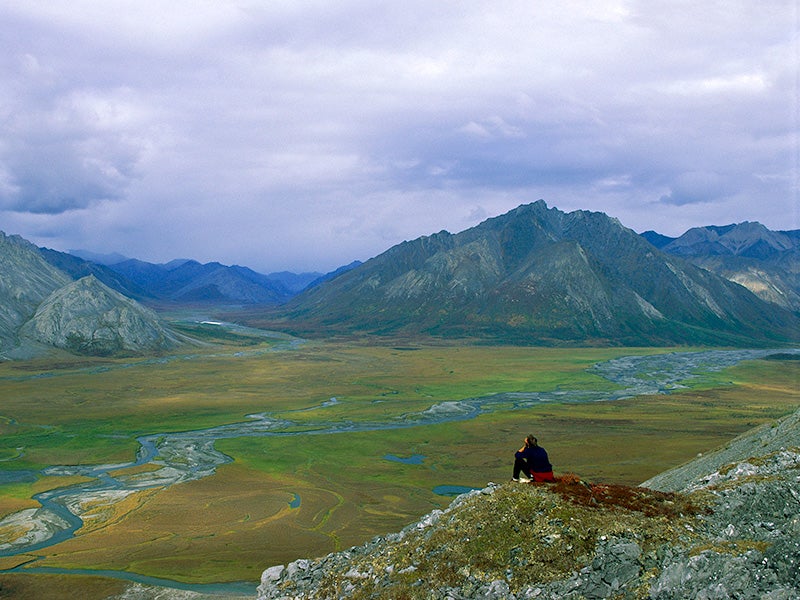Public Overwhelmingly Opposes Drilling in Arctic Refuge
More than one million comments submitted to Bureau of Land Management oppose oil and gas lease sales in the Arctic National Wildlife Refuge
Contact
Today is the final day of the public comment period on the Bureau of Land Management’s (BLM) Arctic Refuge Coastal Plain Oil and Gas Leasing Draft Environmental Impact Statement (DEIS). BLM held seven public hearings in Alaska and one in Washington, D.C., on the planning process, with public sentiment overwhelmingly favoring protection for the Arctic Refuge and its coastal plain. BLM refused to hold additional hearings in the lower 48, but advocates hosted two additional people’s hearings in Denver, Colorado, and Albuquerque, New Mexico. For the current comment period, the American public has submitted more than one million comments in favor of protecting these vital public lands.
Several distinct coalitions have also submitted letters to BLM in support of Arctic Refuge protections:
- Scientists’ Letter — Re: Substantial deficiencies in the Draft Environmental Impact Statement on the Coastal Plain Oil and Gas Leasing Program
- Scholar/Teacher Letter — Arctic Refuge Protectors: An Open Letter from Teachers and Scholars
- Alaska Coalition Letter — Coalition Letter to BLM Re: Arctic Refuge Draft Environmental Impact Statement
- Alaska Business Letter — An Open Letter from Alaska Businesses Supporting Arctic Refuge Protections
The Arctic Refuge is one of our nation’s most majestic landscapes, home to the Porcupine caribou herd. Nine thousand Indigenous Gwich’in people of Alaska and Canada make their home on or near the migratory route of the Porcupine caribou herd, and have depended on caribou for their food and way of life for millenia. The Arctic Refuge is also home to imperiled polar bears, spawning streams for Dolly Varden and other valued fish species, wolves, muskoxen, Dall sheep, arctic foxes and nearly 200 species of migratory birds that arrive to the refuge from six continents and all 50 states.
The Trump administration’s rushed process for leasing the coastal plain is incompatible with protecting wildlife and the subsistence needs of the Gwich’in people, who refer to the coastal plain as “Iizhik Gwats’an Gwandaii Goodlit,” or “The Sacred Place Where Life Begins.” Drilling the coastal plain would forever scar the landscape and threaten the way of life for the Gwich’in. BLM should take the time needed to adequately analyze scientific information, engage in meaningful dialogue with local communities and stakeholders, and examine the impacts drilling would have on the landscape, wildlife and climate.
The Alaska Wilderness League, Center For Biological Diversity, Defenders Of Wildlife, Earthjustice, Environment America, Friends Of Alaska National Wildlife Refuges, National Audubon Society, Natural Resources Defense Council, Sierra Club, The Wilderness Society, and Trustees For Alaska opposed to reckless drilling in the Arctic Refuge, and issued the following joint statement:
“Our public lands, waters and wildlife are national treasures — and are increasingly under attack. Unfortunately, the Trump administration appears to listen primarily to those who would financially benefit from increased drilling and development, rushing to force a lease sale on the coastal plain in 2019 years in advance of the legislative timeline imposed by Congress. Despite promises not to undercut our environmental laws, the intent is clear: expedite oil leasing now before the political landscape shifts. BLM’s current process ignores the science and best practices for protecting our land and wildlife and disregards the human rights of the Gwich’in people. We stand together with the Gwich’in in the fight to preserve this sacred place, and will continue to do so until protections are restored to America’s premier wildlife refuge.”

Additional Resources
About Earthjustice
Earthjustice is the premier nonprofit environmental law organization. We wield the power of law and the strength of partnership to protect people's health, to preserve magnificent places and wildlife, to advance clean energy, and to combat climate change. We are here because the earth needs a good lawyer.